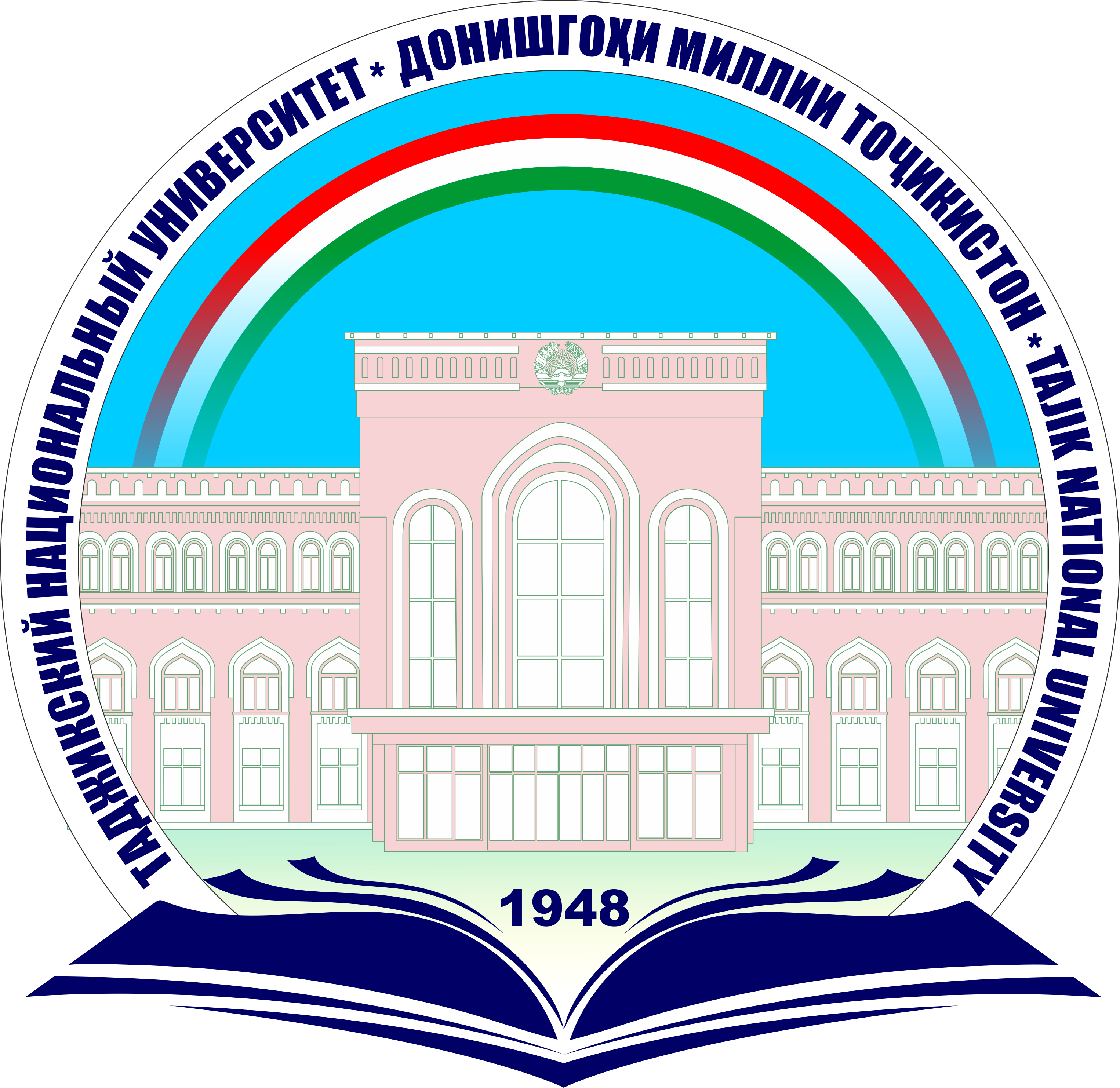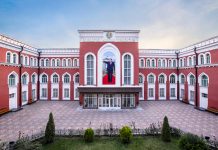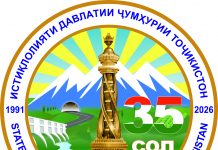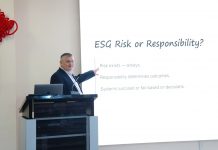The Shanghai Cooperation Organization (SCO) celebrates its 20th anniversary in 2021, which coincides with the Tajikistan’s presidency in this respected international organization.
“The leaders of the SCO founding countries played an important role in shaping its peaceful principles and goals. One of the architects of this organization is the President of Tajikistan Emomali Rahmon, who made a significant contribution to the formation and development of the SCO,” writes Doctor of Philosophy, Deputy Director of the A. Bahovaddinov Institute of Philosophy, Political Science and Law Rustam Haidarov in his article presented by Khovar.
SCO is a leading player in Eurasia
The total area of the SCO is about 34.3 million square meters, or 61% of the entire territory of Eurasia, and its population is more than 3.6 billion people, or 43.8% of the total population of the globe. The SCO area produces 55% of the world’s gross national product, 40% of world trade is concentrated here. The organization has always positioned itself as a multifunctional international platform for dialogue and interaction in the name of peace, common prosperity and stability in Eurasia. Interest in the organization is growing, more and more countries are striving to become a member. Today the SCO unites 28 countries, including:
- SCO member states (India, Kazakhstan, Kyrgyzstan, China, Pakistan, Russia, Tajikistan, Uzbekistan)
- Observer states (Afghanistan, Belarus, Iran, Mongolia)
- Dialogue partners (Armenia, Azerbaijan, Cambodia, Nepal, Turkey, Sri Lanka)
- States that have applied for participation in the SCO as observer states (Bangladesh, Syria, Egypt, Israel, Maldives, Ukraine, Iraq, Vietnam, Bahrain, Qatar)
It is becoming a leading player in Eurasia and an attractive platform for cooperation with an increase in its international authority due to its peaceful principles.
President of Tajikistan is the author of the idea of transforming the Shanghai Five into the SCO
President Rahmon is one of the architects of the organization, who made a significant contribution to the formation and development of the SCO. At the Dushanbe meeting on July 5, 2000, using the right of chairmanship, President Rahmon proposed the idea of transforming the Shanghai Five into a regional multifunctional platform for international cooperation, that is, the Shanghai Cooperation Organization.
He understood that in the period of turbulence and instability in the system of international relations, globalization and challenges of unipolarity, attempts to redraw the geopolitical map in Eurasia, an effective international organization was needed that would consolidate the efforts of the countries of the Eurasian space and ensure the rights of sovereign states to political, cultural and economic development. The period of formation of the SCO coincided with the short-term existence of the so-called unipolar world. However, this unipolar world had no chance for a long life, since the modern world consists of many political cultures and practices, as well as countries that have their own historical experience and nation-building. Realizing this, President Rahmon, as a staunch supporter of the polycentric world order, took part in making the historic decision to create the SCO.
International relations should be based on the principles of democracy and freedom of choice, which implies different alternatives for the development of national states. States should have different alternatives for choosing their national development. Having only one way of development in the modern system of international relations without alternatives and with only one political force dictating all sovereign countries of the world community the conditions and scenarios of political, economic and cultural development, is not conducive to a democratic world.
President Rahmon is firmly convinced that the presence of many political centers in the modern world can serve as a guarantee of the development of political pluralism and the preservation of political diversity in the international arena. Different political cultures and practices should and can complement and enrich each other, since they were formed in different periods of the history of human development under the influence of various geopolitical, economic, and cultural factors. Therefore, the emergence of the SCO in the system of international relations was and remains a natural process and a reflection of the position of countries with an ancient culture of state building.
Today, the SCO presents the entire palette of the world’s political diversity, political cultures and practices that have been able to find points of political contact and rapprochement on many issues, ensuring peace and stability in our region. Also, the SCO does not dictate its political conditions to any country in the world community and does not try to impose its principles and rules of the game.
Peace and stability initiatives
One of the activities of President Rahmon in the SCO is the promotion of initiatives aimed at strengthening peace and stability, preventing threats and challenges in the region, as well as developing trade and economic relations, innovations, and achievements of scientific thought.
He is one of the first political leaders in the SCO who began to pay attention to the issues of combating religious, political and violent extremism, international terrorism, and drug trafficking. Tajikistan took an active part in the development of such important documents as the Shanghai Convention on the Fight Against Terrorism, Separatism and Extremism (2001), the SCO Convention Against Terrorism, the Program of Cooperation of the SCO Member States in the Fight Against Terrorism, Separatism and Extremism for 2013-2015, SCO Convention on Counteracting Extremism (2017). Over the 20-year period of the SCO’s existence, the constructive initiatives of President Rahmon on the fight against international terrorism and the sources of its financing set the tone and determined the vector of activities of the relevant SCO structures.
“Undoubtedly, one of the directions of the SCO’s activity should be the fight against terrorism, separatism, extremism, and the threat of drugs. If we talk about the fight itself, then this fight should be waged both against terrorism and the reasons that lead to the expansion of the activities of this undesirable phenomenon. Tajikistan, as a country at the center of this struggle, calls on the international community to join efforts in the fight against drug trafficking. Our country protects not only itself, but also other countries that are on the path of drug trafficking,” noted President Rahmon in his speech at the SCO summit in Tashkent on June 17, 2004.
History has shown that his position on this issue was justified, because until the sources of financing of international terrorism and extremism are destroyed, the fight against them will be ineffective.
He also noted Tajikistan’s firm and unwavering position in countering terrorism at the summit of the organization in Shanghai in China on June 14, 2006. Then he noted that the importance of ensuring stability and security of the Central Asian region and the entire territory of the organization is growing in the face of new threats and modern phenomena. Efforts to escalate tensions in the region continue. Destructive forces do not give up their intention to find new ways to use the «three evils» in the geopolitical space of Europe and Asia. In Tajikistan, which has experienced all these horrors, it is well known how destructive political extremism and international terrorism can be.
The world community has become convinced that international terrorism adapts to changes throughout the world and improves the methods and means of influence, finds new sources and means of financing.
International terrorism and religious extremism have not only shown vitality, but are constantly mutating and adapting to the changing socio-economic and military-political conditions of the world.
For example, terrorist and religiously radical organizations were among the first to digitize their activities and began to create destructive content on all social networks. Their main audience was young people. Terrorist and religious-extremist organizations have improved technologies for manipulating the consciousness and religious feelings of young people.
The ideology of religious extremism broadcast on social networks is a mixture of religious pseudo-values and gangster romance created taking into account the psychology of young people. Such digital sabotage is carried out with the help of informational material on the internet and is aimed at deforming the minds of young people. It should be assessed as the highest threat to the security of states.
In the coming years, the SCO needs to focus on protecting its information space. China, Russia and India, as the most technologically advanced SCO countries, could join their efforts to create mechanisms and technologies for protecting cyberspace in the SCO region.
President Rahmon has repeatedly called for the need to coordinate actions in countering threats to cyberspace. At the meeting of the Council of Heads of State on November 2020, he noted that stable peace and security in the SCO space are key to our successful development.
It is necessary to continue joint purposeful work in the fight against global threats and security challenges.
Collective effort requires countering the spread of radical ideology, especially among young people, as well as the use of new technologies for criminal purposes, including internet resources.
SCO in solving Afghan problem
Another important area of Emomali Rahmon’s work in the SCO is the search for mechanisms for a peaceful settlement of the military-political crisis in Afghanistan.
Afghanistan has the status of an observer country in the SCO and is interested in deepening relations with this organization.
Promoting national reconciliation and economic recovery in Afghanistan is an important task for the SCO.
Its member states can and should contribute to the establishment of peace in this state. The country has a powerful economic, social and resource potential and, if peace is achieved, it could make a worthy contribution to the development of the region. But due to its geographical location, Afghanistan has become the object of geopolitical games of some superpowers and for many decades has not been able to get out of deep military-political crisis. A generally recognized politician who has managed to resolve the inter-Tajik conflict, Emomali Rahmon, constantly reminds the world community that the fate of Afghanistan must be decided by the Afghans themselves, without foreign interference.
The most important task of the SCO is to intensify multi-format and multi-level cooperation to counter the drug threat emanating from Afghanistan.
“I would like to once again draw attention to the proposal of the Tajik side to establish a special SCO center for combating drug trafficking in Dushanbe. Success in the fight against drugs, which is the concern of the entire international community, can be achieved only through active cooperation with the Afghan government. Assessing the situation, Afghanistan pins great hopes on our organization in terms of providing targeted economic, technical, and humanitarian assistance. It is necessary, without delay, to realistically assess the possibilities of involving the organization in solving the Afghan problem, to optimize the mechanism of the complex interaction of the SCO with Afghanistan,” said President Rahmon in his speech at the meeting of the SCO heads of state on August 28, 2008 in Dushanbe.
It is important to remember that Afghanistan is an important hub and artery of transport corridors in a dynamically developing region. National reconciliation in Afghanistan would allow the SCO to create several transport corridors to stimulate regional trade and strengthen economic ties in Eurasia.
What determines the quality of life in the SCO countries?
Today Asia is becoming the leading locomotive of the world economy. The world leadership of China, an important SCO member state, is already becoming an indisputable fact. All international initiatives of China, especially on the SCO platform, are aimed at creating stable trade and economic ties in Eurasia. The leadership of Tajikistan fully supports and actively promotes the implementation of the Chinese megaproject One Belt — One Road. In the context of deep geopolitical contradictions and unfair economic globalization, the SCO needs to focus on strengthening trade and economic cooperation, attracting investment for the mutually beneficial use of rich hydropower resources, and building strategic roads that will create favorable conditions for free trade.
“Now it is necessary to pay attention to the problems of economic cooperation. Ultimately, improving the quality of life in our countries depends on the solution of socio-economic problems. Some of them could find their solution after the creation of the Development Fund and the Energy Club,” President Rahmon noted in his speech at the meeting of the heads of the SCO member states on August 2008 in Dushanbe.
President Rahmon pays constant attention to the expansion of cooperation between states in the areas of energy, the development of green energy, protection of nature, and environmental health, as well as in the spheres of health, culture, science, technology, innovation and sports.
The SCO needs to create a health center
His speech at the meeting of the Council of Heads of SCO Member States in 2020 was devoted to the issues of interaction, when he noted that against the backdrop of the coronavirus pandemic, we are now facing new socio-economic challenges. National economies, including that of Tajikistan, have suffer significant economic damage. The pandemic has become a factor in the sharp increase in unemployment, an obstacle to the inflow of investment and the development of trade. Various countries may face food security threats.
According to authoritative international organizations, the negative impact of the consequences of the pandemic on the world economy is long-term.
These challenges dictate the urgency of taking necessary measures for an adequate joint response.
As the experience of countering the coronavirus pandemic has shown, an important tool in this matter is the presence of a developed digital economy and the sphere of digital services that will allow the national economies of states, entrepreneurs, in particular, to operate in quarantine, as it was during the coronavirus pandemic. Based on the foregoing and taking into account the experience of the fight against the coronavirus, the SCO needs to consider the creation of the SCO Digital Economy Development Fund, which would help the SCO member states accelerate the process of digitalization of their national economies. Now there is a need to create a SCO Healthcare Center in order to coordinate the activities of healthcare structures of the SCO member states, exchange experience and knowledge, develop unified treatment algorithms during a pandemic, produce items for the provision of primary health care, access to medicines and resources in a pandemic.
The SCO needs to have the entire arsenal of medical products in order not to become an object of manipulation by various international forces. The coronavirus has transformed from a medical problem into a global political vulnerability and has highlighted the entire spectrum of problems in international relations. But during the coronavirus pandemic, it was the SCO countries, especially Russia and China, that showed solidarity, provided maximum medical assistance to all countries of the world community, including Tajikistan. Therefore, the healthcare system in the SCO space needs to be given special attention and perceive this system as a key element of national security.









